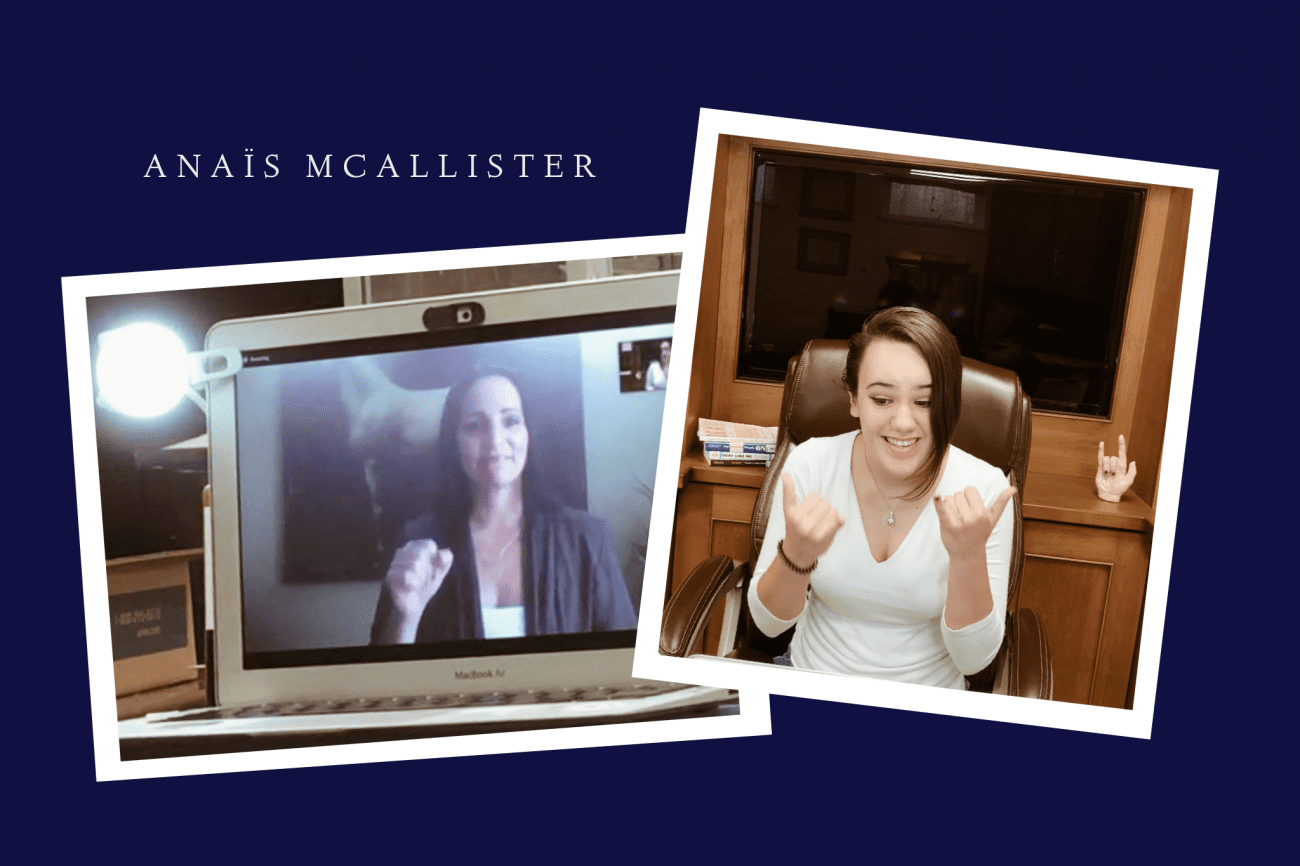Capstone Project Highlight Series: Anaïs McAllister ’21

Each year, a number of junior and senior class members choose to participate in the MFS Capstone Program. Designed to challenge students who wish to pursue advanced study in a particular field, the program asks participants to produce scholarly work by engaging in independent research and/or creative development under the guidance of an MFS faculty member. This series highlights recently completed projects of the 18 senior students in the program.
In sixth grade, Anaïs McAllister ’21 quickly became fascinated with Deaf culture and American sign language after watching a TV show that featured a Deaf main character. Acting on her intrigue, Anaïs began studying American Sign Language with a tutor and dove into learning about Deaf culture in our country. As she continued her studies it became apparent to her that the hearing population has little knowledge or understanding of the Deaf community and culture. In an effort to bring attention to the culture and to better inform hearing people, Anaïs created an hour-long documentary as her capstone project.
The documentary is made up of two portions – “the first portion reflects on the past whereas the second portion is filled with interviews with Deaf individuals to discuss the state of present-day Deaf culture.” Beginning with the creation of the American School for the Deaf and the founding of Gallaudet University in Washington, D.C. – named for Thomas Hopkins Gallaudet, a leader in the advancement of Deaf education – Anaïs takes the viewer through a series of important events in the rise of Deaf education and culture over the last three centuries. She notes many obstacles that the Deaf community has had to overcome: the fight for oralism led by Alexander Graham Bell (a method of communication that uses lipreading and mouth mimicking to get as close to real speech as possible) rather than American Sign Language (ASL), segregation in schools and the unjust discrimination that black Deaf communities faced, a lack of Deaf leaders selected to run Deaf schools, and more. In response, the creation of organizations such as the National Deaf Black Advocates, the National Association for the Deaf, and other advocacy and civil rights groups have helped to combat the many obstacles that the Deaf community has faced.
For the second portion of her documentary, a number of Deaf community members helped to answer questions that Anaïs has had while learning about Deaf culture. The interviewees speak about name signs and the assignment of those signs, the difference between English and ASL, the ways in which being born to hearing parents can affect the communication within a family, how the term “hearing impaired” is discriminatory, and much more. Watch the documentary and read more about Anaïs’ project here.
